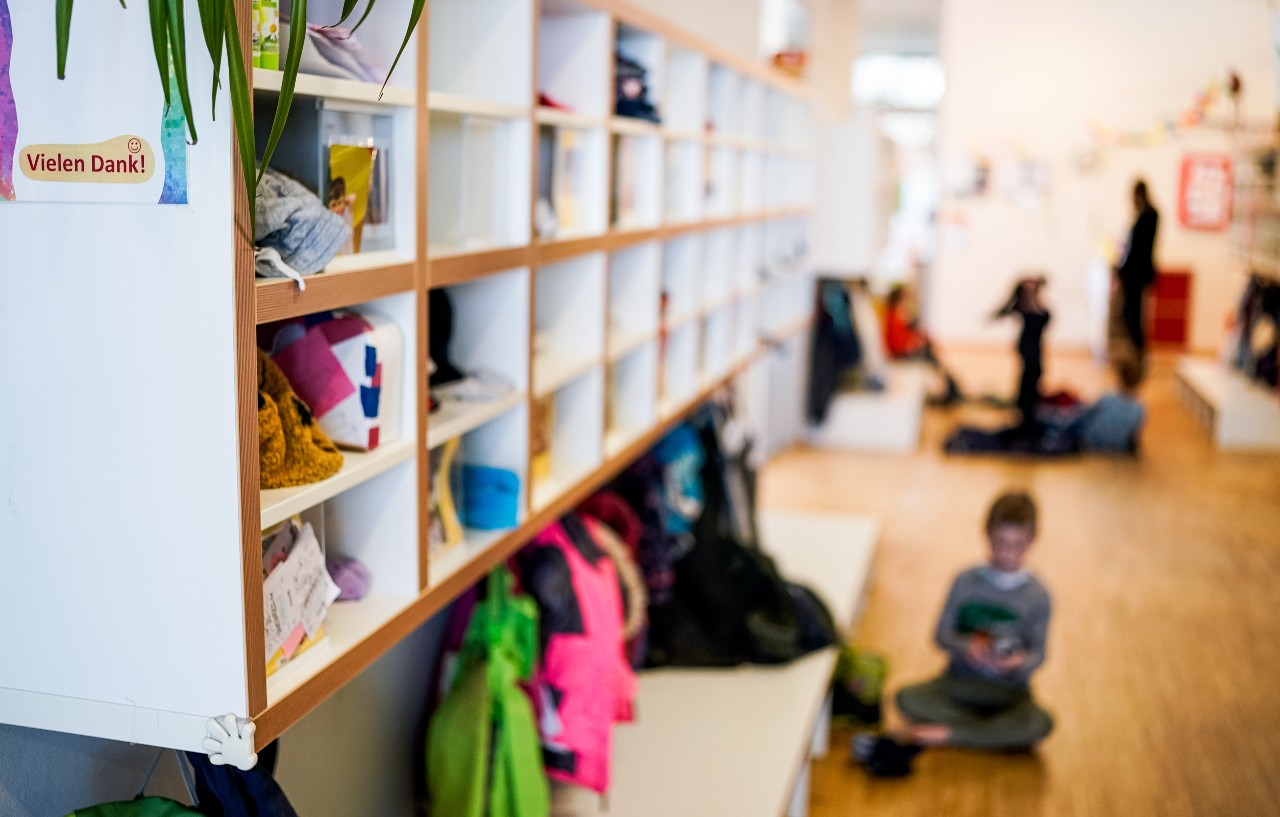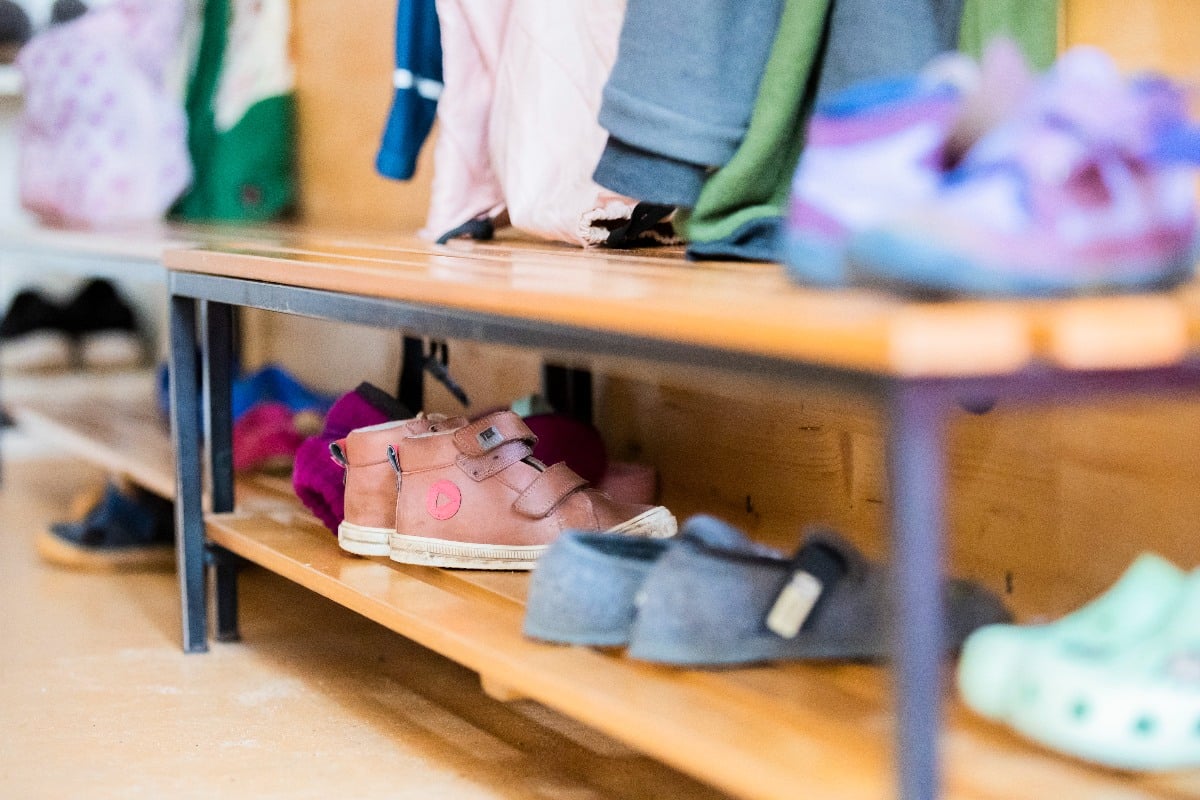Having children in a kita or kindergarten in Germany can be a fast-track course to learning everything about German culture, writes Tom Pugh.
Pre-school childcare in Germany comes in different shapes and sizes, from Kinderkrippes to Kitas and Kindergartens.
The differences, varying by state as well as type, can be difficult to pinpoint. Wherever you are, however, demand for places is generally high. When my daughter was born, people wondered out loud why we hadn’t already put her (unknown) name down on multiple waiting lists.
READ ALSO: How Germany plans to solve its Kita crisis
We started making calls and dragging ourselves to every Schnuppertag (taster day) within a ten-mile radius. The first few weeks after a baby arrives have a hallucinatory quality. Through a haze, I remember visiting large state-run kindergartens and tiny Elterninitiative (parent initiative) kindergartens. The former looked well-resourced and well-run but the sheer number of children felt overwhelming.
My new instinct to protect was kicking in – but not to the point where I could see myself getting involved with an Elterninitiative. I wanted to drop my daughter off somewhere safe in the morning, then pick her up in the afternoon – without spending any of the hours in between cleaning up after fifteen children, cooking or (God forbid) leading the ‘morning circle’.
Eventually, our daughter was offered a place at an ‘independent childcare provider’ – a small kindergarten operating from the converted ground floor apartment of a typical Berlin tenement building.
Cultural differences
Starting full-time kindergarten at the age of one seemed weird to many of my friends in the UK. I explained that it helped both parents get back to work – and something like a normal life. I talked about equality of the sexes. In truth, this turned out to be less than half the story. I think I learned more about Germany – and England – in the following few weeks than I had in the previous four years.
Advertisement
Kindergarten in Germany begins with Eingewohnung – an initial period during which the parents and the nursery teachers work together to try and make the child feel at home. Different kindergartens take different approaches. For some, it’s like ripping off a plaster (it will sting, but only briefly). Others take a child-led approach, in which the parent is expected to remain physically present until the child makes it clear they no longer need or want that level of reassurance (even when this takes weeks or even months).
Unsurprisingly, most nursery schools fall somewhere in between. My wife and I shared Eingewohnung. On day one, my wife stayed with our daughter at the kindergarten for an hour, before the two of them left together. On day three, I stayed for an hour then left our daughter for an hour. By the middle of the following week, we were dropping her off at nine and picking her up at three.
READ ALSO: Six surprising facts about Germany’s school system
Making friends
Children have a habit of making friends. Toddlers can’t be trusted to make their own arrangements, so their parents are called upon to organise playdates. I arrived promptly at my daughter’s kindergarten the first time this happened, keen to make a good impression on her new friend’s mother. I smiled and said hello, slipped my daughter’s shoes on, fed her arms into the sleeves of her (lightweight) jacket and grabbed her bag. Job done in under two minutes.

Children at a kita in Kiel, Schleswig-Holstein. Photo: picture alliance/dpa | Axel Heimken
My counterpart had used the time to make herself comfortable on a bench in the tiny cloakroom. She sat with a benign smile on her face while her son, on the far side of the room, assembled all the many, many pieces of his outfit.
In Germany, people like to say there’s no such thing as bad weather, only bad clothing (es gibt kein schlechtes Wetter, nur falsche Kleidung). The British take an opposite view, preferring to crack on as if we have the weather we want, dressing in shorts and eating ice-cream in July despite the chill wind and persistent drizzle. In Germany, these attempts to help our children make the best of an unfriendly climate are generally misunderstood as child abuse.
Advertisement
Lessons in independence
I waited in the entrance to the cloakroom, unsure of what was happening. My daughter’s friend stared dreamily into space for several minutes. His mother cleared her throat. The boy began pulling socks on over the pair he was already wearing. He did not approach this task with any visible enthusiasm. He lined up the buttons on his cardigan with his tongue stuck between his teeth. It took him an age to decide on the order in which he would tackle his knitted vest, scarf, and hat.
READ ALSO: What foreign parents should know about German schools
Repeatedly, he failed to fit his fingers into his padded gloves. The ski-suit he wriggled into was so shiny and sleek with high performance fabrics he might have been on his way to the moon. His boots, which he could barely reach, were the size of small tractors.

Children’s shoes at a Kita. Photo: picture alliance/dpa | Christoph Soeder
By the time he finally reached the cloakroom door, I was reduced to a gibbering wreck in the corner. His mother asked him whether he’d forgotten anything. The boy went back for his bag. From beginning to end, the process must have taken forty minutes. I’d always assumed that independence was something children acquired by magic, or perhaps as the result of benign neglect. In Germany, it’s something which parents take great pride in teaching their children. Even for an onlooker, the lessons require the patience of an early Christian saint.
Advertisement
Admittedly, the results are remarkable. By the age of two, my children were taking their own dirty dishes into the kitchen. Before they were three, they knew how to cross a road, handle money and brush their teeth. Now, at thirteen and ten, they prepare meals, manage their own schedules, and navigate Berlin far more efficiently than I do. I’m terrified I only have a few months left before they realise they no longer need me at all.
#kids #German #kindergarten #teaches #local #culture


